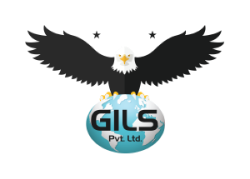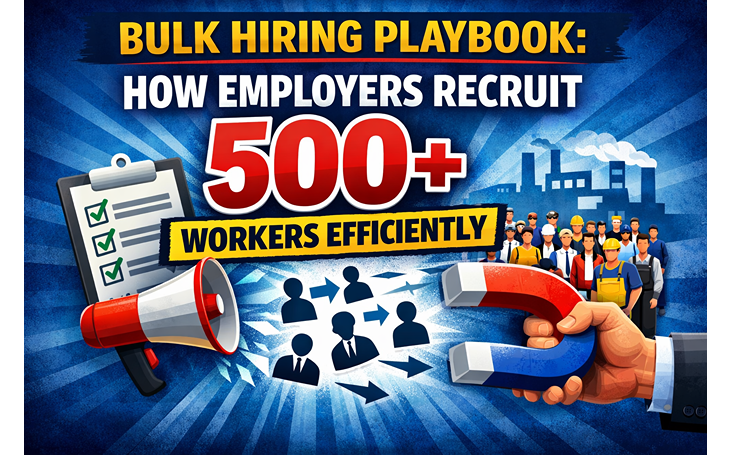Outsourcing HR : A Strategic Approach To Managing Human Capital
Outsourcing HR : A Strategic Approach To Managing Human CapitalWhat is HR outsourcing?
Outsourcing human resources (HR) refers to outsourcing HR functions and responsibilities to external service providers. These service providers, often called HR outsourcing companies, offer specialized HR services to organizations, allowing them to offload certain HR functions and focus on their core business operations. HR outsourcing can be classified into different types, including functional outsourcing, selective outsourcing, and comprehensive human resource outsourcing, depending on the scope and scale of HR functions being outsourced.
- Functional outsourcing involves outsourcing specific HR functions, such as payroll management, benefits administration, recruitment, or training and development.
- Selective outsourcing involves outsourcing specific HR functions for a select group of employees, such as payroll management for a particular region or country.
- Comprehensive outsourcing involves outsourcing the entire HR function to an outsourcing firm, encompassing all HR services and responsibilities.
HR outsourcing services
HR outsourcing services can be tailored to meet the specific needs of organizations, ranging from basic administrative services to more complex strategic and HR support functions. Some common HR outsourcing services include:
Payroll management
Outsourcing payroll management can relieve organizations of the administrative burden of processing payroll, calculating taxes, and managing employee benefits. HR outsourcing companies use specialized payroll software to ensure accurate and timely payroll processing, compliance with tax laws, employment laws, and adherence to labour regulations.
Benefits administration
HR outsourcing companies can handle employee benefits administration, including enrolment, eligibility verification, claim processing, and compliance with benefit plans. This can help organizations ensure that their employees have access to the right benefits while also managing the costs and complexities associated with employee benefits.
Recruitment and onboarding
Outsourcing recruitment and onboarding functions can streamline the hiring process, from posting job ads and screening resumes to conducting interviews and performing background checks. HR outsourcing companies can use their expertise and resources to attract top talent while ensuring a smooth onboarding experience for new hires.
Employee Self-Service (ESS)
HR outsourcing companies can provide employee self-service portals, which allow employees to access and update their personal information, view pay stubs, request time off, and manage other HR-related tasks online. This can improve employee engagement and satisfaction while reducing the administrative workload for HR teams.
Employee relations and compliance
HR outsourcing companies can provide guidance and support on employee relations, including dispute resolution, performance management, and compliance with labour laws and regulations. This can help organizations maintain healthy employee relations and ensure compliance with legal requirements.
Training and development
Outsourcing training and development functions can enable organizations to access specialized training resources and expertise without investing in developing their training programs. HR outsourcing companies can offer a wide range of training and development programs tailored to meet the specific needs of organizations and their employees.
Selecting an HR outsourcing company
Numerous global HR outsourcing companies offer various HR solutions and outsourcing services to organizations of all sizes and industries. When selecting an HR outsourcing company, organizations must consider several factors, including the company's reputation, experience, expertise, cost, service offerings, and technology capabilities.
Here are some key aspects to consider when evaluating HR outsourcing companies:
Reputation and experience: Look for HR outsourcing companies with a strong reputation and proven experience in providing HR services. Check their track record, client testimonials, and industry recognition to assess their credibility and reliability.
Expertise and service offerings: Consider the range and depth of the outsourcing company's HR services. Ensure they have the expertise and capabilities to handle the specific HR functions your organization needs, whether payroll management, recruitment, benefits administration, or other HR services.
Technology capabilities: HR outsourcing companies rely on HR software to manage HR operations efficiently. Evaluate the technology capabilities of the outsourcing company, including its HR software, data security measures, and data analytics capabilities. Ensure that their technology solutions align with your organization's needs and requirements.
Cost and value: HR outsourcing can be a cost-effective solution for organizations, but it's important to assess the cost and value proposition of the outsourcing company. Compare pricing models, service level agreements (SLAs), and contractual terms to ensure the outsourcing company offers competitive pricing and delivers value for the services provided.
Cultural fit: HR functions involve managing sensitive employee data and dealing with employee relations, so ensuring that the HR outsourcing company understands and aligns with your organization's culture and values is essential. A cultural fit can ensure smooth communication, collaboration, and understanding of your organization's HR needs.
HR software for HR outsourcing
HR software enables HR outsourcing companies to manage HR operations efficiently. HR software automates administrative tasks, streamlines processes, and provides analytics and reporting capabilities to support data-driven decision-making. Here are some common HR software used in HR outsourcing:
- Human resource information system (HRIS) - An HRIS is a comprehensive piece of software that manages various HR functions, including employee data management, payroll processing, benefits administration, and time and attendance tracking.
- Payroll software: Payroll software automates calculating and processing employee salaries, taxes, and benefits. It ensures accurate and timely payroll processing, compliance with tax laws, and the generation of payroll reports.
- Recruitment and applicant tracking system (ATS) - ATS software streamlines the recruitment process by managing job postings, receiving and managing applications, conducting interviews, and performing background checks.
- Employee self-service (ESS) portals - ESS portals are web-based platforms that allow employees to access and update their personal information, view pay stubs, request time off, and manage other HR-related tasks online.
Benefits of HR outsourcing
HR outsourcing services offer numerous benefits to organizations that leverage external expertise for their HR functions. Some of the key benefits of HR outsourcing include the following:
- Cost Savings: Outsourced HR can be a cost-effective solution for organizations, eliminating the need to hire and train in-house HR staff and invest in IT infrastructure. HR outsourcing companies can leverage economies of scale and expertise to deliver services at a lower cost than maintaining an in-house HR team.
- Focus on Core Business Outsourcing: HR allows organizations to focus on their core business operations and strategic initiatives while leaving HR functions to external experts. This enables organizations to allocate resources and attention to their core competencies, increasing productivity and efficiency.
- Access to Expertise and Technology: HR outsourcing companies bring specialized HR professionals and advanced HR technology solutions that may not be available in-house. This allows organizations to access best practices, industry knowledge, and cutting-edge technology for their HR operations, improving performance and outcomes.
- Flexibility and Scalability: HR outsourcing provides organizations flexibility and scalability in managing their HR functions. Organizations can easily scale up or down their HR services based on their changing needs without the burden of hiring, training, and managing in-house HR staff.
- Risk Mitigation: HR outsourcing companies ensure compliance with labour laws, regulations, and industry standards. This helps organizations mitigate HR-related risks, such as legal liabilities, payroll errors, and compliance issues, and ensures that HR operations are managed promptly and efficiently.
- Enhanced HR Service Quality: HR outsourcing companies are specialized in delivering HR services, which can lead to improved HR service quality. HR outsourcing companies have the expertise, technology, and resources to deliver HR services with high accuracy, efficiency, and timeliness, improving employee experience and satisfaction.
Challenges of HR outsourcing
While HR outsourcing offers numerous benefits, organizations should know its potential challenges and risks. Some of the common challenges of HR outsourcing include the following:
Loss of control
HR outsourcing involves entrusting HR functions to external experts, which may result in a perceived loss of control over HR operations. Organizations may feel they have less visibility and influence over HR processes, policies, and decisions, which can be challenging for organizations that value control over their HR functions.
Data security and confidentiality
HR functions involve handling sensitive employee data, such as personal information, payroll data, and performance evaluations. Organizations must ensure that HR outsourcing companies have robust data security measures to protect employee data's confidentiality and integrity. Data breaches or mishandling of sensitive data can result in legal liabilities and reputational damage.
Communication and Collaboration
Effective communication and collaboration are crucial for successful HR outsourcing engagements. Organizations must establish clear communication channels, expectations, and feedback mechanisms with HR outsourcing companies to ensure smooth collaboration. Language barriers, time zone differences, and cultural differences can challenge effective communication and collaboration in HR outsourcing engagements.
Service quality and performance
Organizations need to monitor the performance and quality of HR services delivered by outsourcing companies to ensure that they meet the organization's expectations and standards. This may require setting up key performance indicators (KPIs) and regularly reviewing the performance metrics of the HR outsourcing company. Inadequate service quality, delays, errors, or lack of responsiveness from the HR outsourcing company can adversely impact the organization's HR operations and employee experience.
Alignment with organizational culture and values
HR functions are closely tied to an organization's culture, values, and policies. When outsourcing HR functions, organizations must ensure that the HR outsourcing company aligns with their culture and values and understands and adheres to their HR policies. Misalignment with the company's culture and values can result in inconsistencies in HR practices and policies, leading to employee confusion and dissatisfaction.
Transition and change management
Transitioning from an in-house HR team to HR outsourcing requires careful planning and change management. Organizations must manage the transition process effectively, including communicating the changes to employees, addressing their concerns, and providing necessary training and support. Resistance to change, lack of employee buy-in, or inadequate change management can impact the success of HR outsourcing initiatives.






